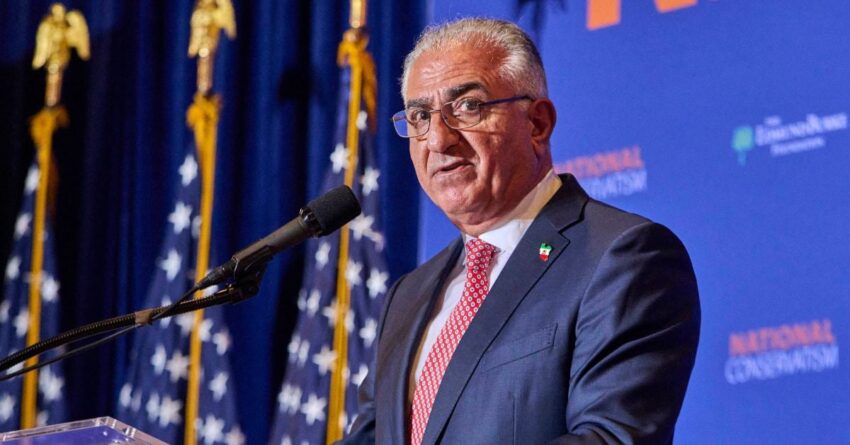Reza Pahlavi, the exiled son of Iran’s last shah, has called on Supreme Leader Ayatollah Ali Khamenei to resign and face justice as the country grapples with internal turmoil and the threat of foreign military strikes.
Reza Pahlavi

Speaking at a press conference in Paris, the 64-year-old Pahlavi — heir to the Peacock Throne before the 1979 Islamic Revolution toppled his father — said Iran is approaching a pivotal moment. “The military is fractured, the people are united, and the foundations of this 46-year tyranny are shaking,” he declared. “This is our Berlin Wall moment. But like all moments of great change, it comes with great danger.”
Crown Prince of Iran

Pahlavi, who lives in the United States and is often referred to as the “Crown Prince of Iran” by his supporters, claimed without presenting evidence that Khamenei and other senior regime officials were preparing to flee the country with their families as the United States joined Israel in bombing Iran’s nuclear facilities. He issued a direct appeal to Khamenei, saying, “Step down, and if you do, you will receive a fair trial and due process of law.” Pahlavi also announced plans to create a “secure platform” for Iranian dissidents and internal opponents of the regime to coordinate efforts toward what he described as a “free and democratic future.” Pahlavi did not specify which crimes he believed Iran’s leadership should face trial for, framing his call as a general demand for accountability.
Monarchist movement

While Pahlavi enjoys significant support within the Iranian diaspora and among monarchists advocating for a restoration of the monarchy, his popularity inside Iran remains uncertain. Most Iranians are too young to remember life under the shah, and opinions among older generations are divided between nostalgia for pre-revolutionary stability and resentment over the era’s inequality and repression. The shah, who died in exile in Egypt in 1980, was a U.S.-backed autocrat whose regime relied on secret police and widespread torture to suppress opposition. The shah’s security services reportedly tortured Khamenei himself at age 24 during one of his many prison stints for political activism. Outside of Pahlavi’s monarchist movement, the other prominent opposition group in exile is the People’s Mujahideen Organization, or MEK. Founded in the 1970s, the MEK waged a violent guerrilla campaign against the shah but lost out to Islamist factions after the revolution. The group later became deeply unpopular in Iran after siding with Iraq during the 1980-88 war, and it has faced longstanding allegations of human rights abuses and cult-like behavior, which it denies.
Iran’s ties

Today, the MEK is headquartered in Albania and serves as the main force behind the National Council of Resistance of Iran, which has cultivated ties with Western politicians including former New York City mayor and Trump attorney Rudy Giuliani. At a Paris forum on June 20, the council’s leader, Maryam Rajavi, rejected any return of the monarchy, emphasizing her stance of “neither the shah nor the mullahs.”
The post Iran’s Crown Prince steps up to Supreme Leader appeared first on Knewz.
Click this link for the original source of this article.
Author: Joshua Wilburn
This content is courtesy of, and owned and copyrighted by, https://knewz.com and its author. This content is made available by use of the public RSS feed offered by the host site and is used for educational purposes only. If you are the author or represent the host site and would like this content removed now and in the future, please contact USSANews.com using the email address in the Contact page found in the website menu.







